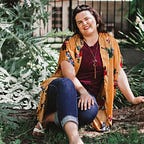Yes, You Do Have Biases (And So Do I)
If you believe that you don’t have biases — any biases — you’re living in a fantasy world! How do I know? Because honestly….we all have biases. Pretending we don’t is harmful, and it keeps us from addressing them and doing something about them.
Here’s what the Google Search dictionary entry says about bias:
noun
- prejudice in favor of or against one thing, person, or group compared with another, usually in a way considered to be unfair
verb
- cause to feel or show inclination or prejudice for or against someone or something.
As Diversity Advocate Vernā Myers notes:
Biases are the stories we make up about people before we know who they actually are.
You can use Harvard’s Project Implicit tests to find out more about your own unconscious biases.
In her TEDx Beacon Talk, Vernā Myers asks us to question ourselves with these questions:
Who is your default? Who do you trust? Who are you afraid of? Who do you implicitly feel connected to? Who do you run away from?
Furthermore, she exhorts us to actively search for our biases, and to find ways to prove ourselves wrong —
Go looking for your bias. Please, please get out of denial and go looking for disconfirming data that will prove that, in fact, your old biases are wrong.
Rather than ignoring or avoiding your biases, and then belligerently trying to force others to “prove” to you that you’re wrong, YOU can take the bull by the horns and do that work yourself.
What don’t you know? What pieces are you missing? How much exposure and experience have you actually had? What relationships have impacted you?
If you have biases pertaining to age, gender, ethnicity, race, religion, size, education, nationality, ability level, class, or _________, you don’t have to hang on to them. You also don’t have to make people who hold those social identities responsible for changing your mind, removing your biases, or shifting your worldview. That’s your job. If you want to release your biases, you have to do the work of naming them, interacting with them, and replacing them. (In the TEDx Talk posted above, Meyers offers some great suggestions!)
Often, we’ll identify biases based on a single social identity. For example, what it means to us if someone is a man, is a Muslim, is a highschool dropout, etc. The lens of intersectionality reminds us that biases and prejudice can culminate even more deeply at the intersections of various identities.
If you hold independent biases about single social identities, what happens when those identities overlap in a single person? Presumably, they would amplify. Conversely, if someone intersects with one identity you are biased against and multiple other identities you are neutral about or biased towards, the intersections may offset some of the disadvantages they might have otherwise experienced.
Because we are humans, our minds are constantly categorizing things. We naturally form biases, often unconsciously, and are unaware of the impact they have on our own worldview or on others. Rather than pretend we’re somehow superhumans we are above having biases, we should bravely face them, name them, and set about changing them.
As Meyers says:
Walk towards your discomfort.
We can. We must.
— — — — — -
A Harvard-trained lawyer and founder of The Vernā Myers Company, Vernā is also the VP, Inclusion Strategy at Netflix where she leads her team in devising and implementing strategies that integrate cultural diversity, inclusion and equity into all aspects of Netflix’s operations worldwide.
You can find Meyer’s 2012 book, Moving Diversity Forward: How to Go From Well-Meaning to Well-Doing on her site, as well as her 2014 book, What If I Say the Wrong Thing? 25 Habits for Culturally Effective People.
— — — — — -
With I Am Intersectionality, I hope to provide thought-provoking resources that will help us understand more about our own personal intersections, and what those intersections mean in the historical and social moment we are living in today. If you’d like to get an occasional email with articles and resources on intersectionality, sign up here!
